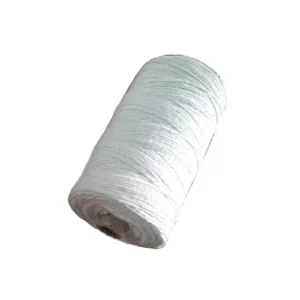Ceramic fiber insulation exhibits exceptional resistance to high temperatures and thermal shock due to its unique composition and structural properties. Here’s how:
- High Melting Point: Ceramic fiber insulation is primarily composed of alumina-silicate fibers, which have an exceptionally high melting point. These fibers can withstand temperatures ranging from 1260°C to 1800°C (2300°F to 3272°F), making them ideal for applications where extreme heat is encountered.
- Low Thermal Conductivity: Ceramic fiber insulation has low thermal conductivity, meaning it does not transfer heat efficiently. Instead, it acts as a barrier to heat transfer, minimizing the amount of thermal energy that can penetrate through the insulation material.
- Excellent Thermal Stability: Ceramic fiber insulation maintains its structural integrity and insulation properties even when exposed to high temperatures for prolonged periods. It does not degrade or deteriorate at elevated temperatures, ensuring long-lasting performance in demanding thermal environments.
- Minimal Thermal Expansion: Ceramic fiber insulation exhibits minimal thermal expansion, meaning it expands very little when exposed to heat. This property reduces the risk of thermal stress and cracking, even during rapid temperature changes or thermal cycling.
- Resistance to Thermal Shock: Ceramic fiber insulation is highly resistant to thermal shock, which occurs when a material undergoes rapid temperature changes. ceramic fiber insulation The inherent flexibility and resilience of ceramic fibers allow them to withstand sudden shifts in temperature without cracking or breaking, ensuring reliable performance in thermal cycling applications.
- Structural Stability: Ceramic fiber insulation maintains its structural stability and dimensional integrity at high temperatures, providing consistent insulation performance over time. It does not shrink, warp, or deform under thermal stress, ensuring a tight seal and effective insulation in critical applications.
- Chemical Inertness: Ceramic fiber insulation is chemically inert and resistant to chemical reactions, even at high temperatures. It does not react with most chemicals or gases, ensuring that its insulation properties remain unaffected in corrosive or aggressive environments.
- Versatility: Ceramic fiber insulation is versatile and can be tailored to suit specific temperature requirements and application needs. It is available in various forms, including blankets, boards, papers, and modules, allowing for flexibility in design and installation in a wide range of industrial and commercial applications.
Overall, the combination of high melting point, low thermal conductivity, thermal stability, resistance to thermal shock, structural integrity, and chemical inertness makes ceramic fiber insulation exceptionally resistant to high temperatures and thermal cycling, making it an ideal choice for demanding thermal insulation applications.
